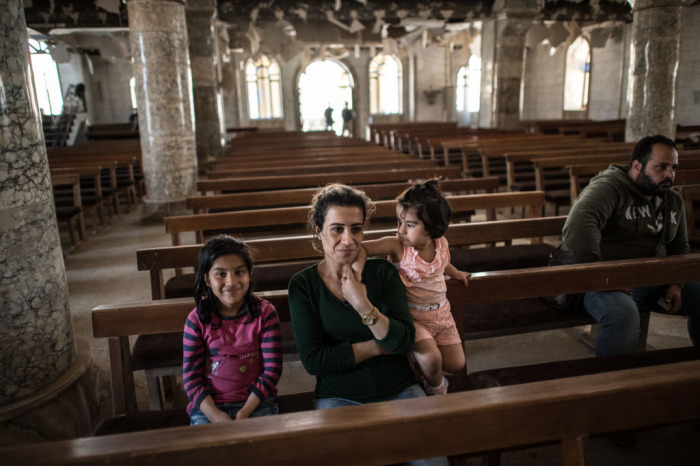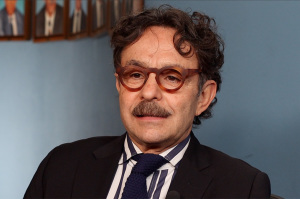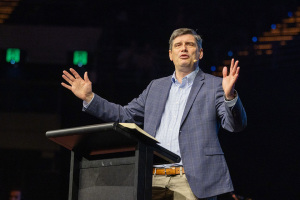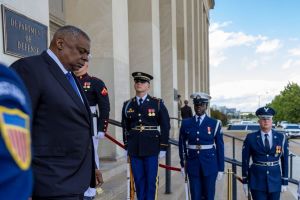Iraqi trauma care program is helping ISIS' victims heal deep wounds

In Iraq, where people are in the throes of rebuilding their lives following the horrors of the Islamic State terrorist group that once controlled large swaths of the country, a Christian group is running a trauma care program to help those carrying deep wounds.
A monk, locally known as Brother Wisam from the town of Al Kosh, is a driving force behind the trauma care program. “If we don’t deal with the trauma in our community, the future of Christianity in Iraq is very dark,” he said, according to Open Doors USA, one of the biggest persecution watchdog groups in the world, which is highlighting his efforts.
“I am not a psychologist,” he added. “But what I saw working with the people during the displacement and then afterward alarmed me: People cannot get rid of the anger inside of them, triggering conflicts in families; people suffer from sleeplessness, substance abuse and [thoughts of] suicide, especially among young people.”
Wisam says the trauma has also had a spiritual impact on Christians. “You have to imagine that some people lived next to their neighbors for 40 years, but when the Islamic State group came, the neighbors didn’t help [the Christians]; even worse, [the neighbors] stole from the Christians’ houses after they’d fled. If you cannot trust people that you see — how can you trust God, someone you don’t see?”
A local Christian, identified only as Vian and who is a program facilitator at the trauma care center in Al Kosh, agrees with Wisam.
“When people used to tell me about God’s existence, I would be like, but what about the suffering, the torture, the displacement?” she was quoted as saying. “It is only through actively working through my trauma that I have been able to see the presence of God in all this.”
Mental health and trauma are rarely addressed in Iraq, and there’s a stigma around such sufferers, she said. “We see people who are mentally ill as either crazy or lazy.”
Wisam added that after attending the trauma care program, many people are at least able to function in their daily lives. “They are struggling, … but [they] survive. But wounds as deep as we are facing here aren’t fixed with one training. Creating awareness and achieving healing takes time. It might take years, generations. We have no other way: We must become people of peace.”
At last week’s G20 event centered on religions' role in helping solve global problems, the Most Rev. Bashar Warda, the Chaldean Catholic Archbishop of Erbil, warned that Christianity in Iraq was “on the very edge of extinction.”
During his remarks at the G20 Religion Forum in Bali, Indonesia, the archbishop stressed that “sectarian violence” was a significant problem in Iraq. This country suffered the rise of an Islamic State stronghold during the last decade in which thousands of Iraqi religious minorities were killed, enslaved or forced to flee their homelands.
“Without an end to this sectarian violence, there is no future for religious pluralism in Iraq, or anywhere else in the Mideast for that matter,” he said. “The brutal logic of this is that there does eventually reach an end point where there are no minorities left to kill, and no minorities left to persecute.”
Warda added, “As I share with you this experience, I pray that you will find in our story a clear warning to you all,” and noted that after around 1,900 years of existing in the region, “we Christians of Iraq now find ourselves on the very edge of extinction.”
There is “a fundamental crisis of violence within Islam” that “can no longer be ignored,” he said, adding that it “continues to affect the entire Middle East, Africa, Asia and beyond.”
In 2018, David Curry of Open Doors USA told Mission Network News that Christians in many other countries where persecution is intense were going through trauma.
“The next generation of Christians in the Middle East, in Asia, in Central Asia, in places like Iraq and Syria, places like Kazakhstan and Uzbekistan and Afghanistan — these young Christians have been through trauma no human being should ever have to see,” he said.
He recalled the story of a young man named Noah from Iraq.
“His experience was like so many others. In the middle of the night, he was awakened by his parents and told, 'ISIS is coming to attack us because we are Christians.' So he had to leave everything in his house, even his most precious toys, everything. And when he came back, it was all destroyed,” Curry said at the time.





























